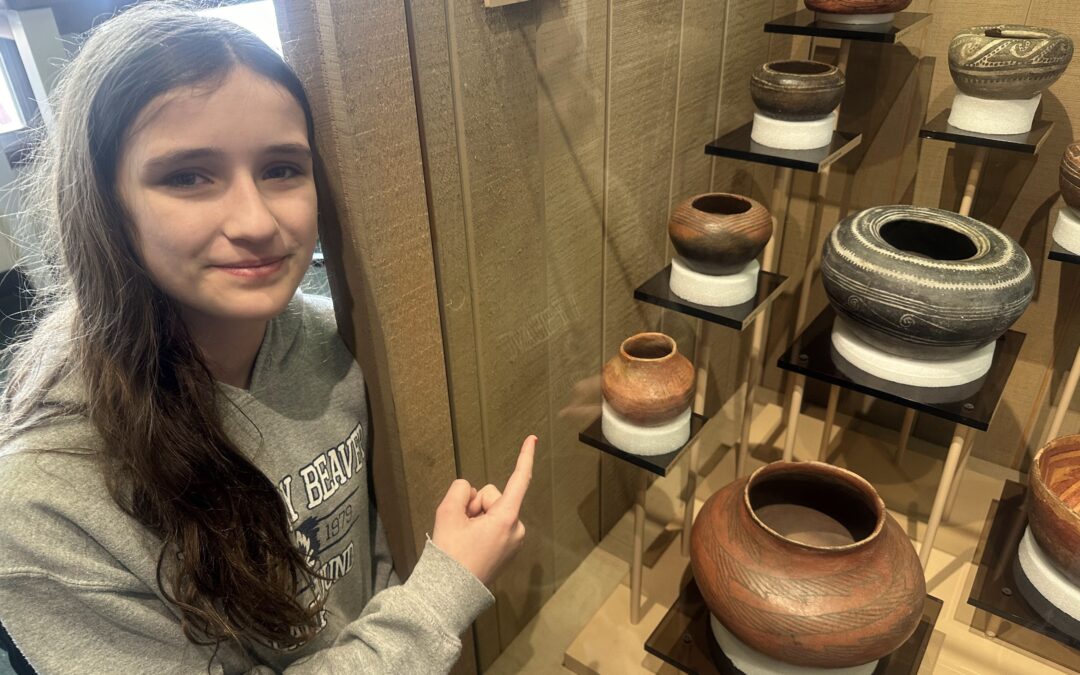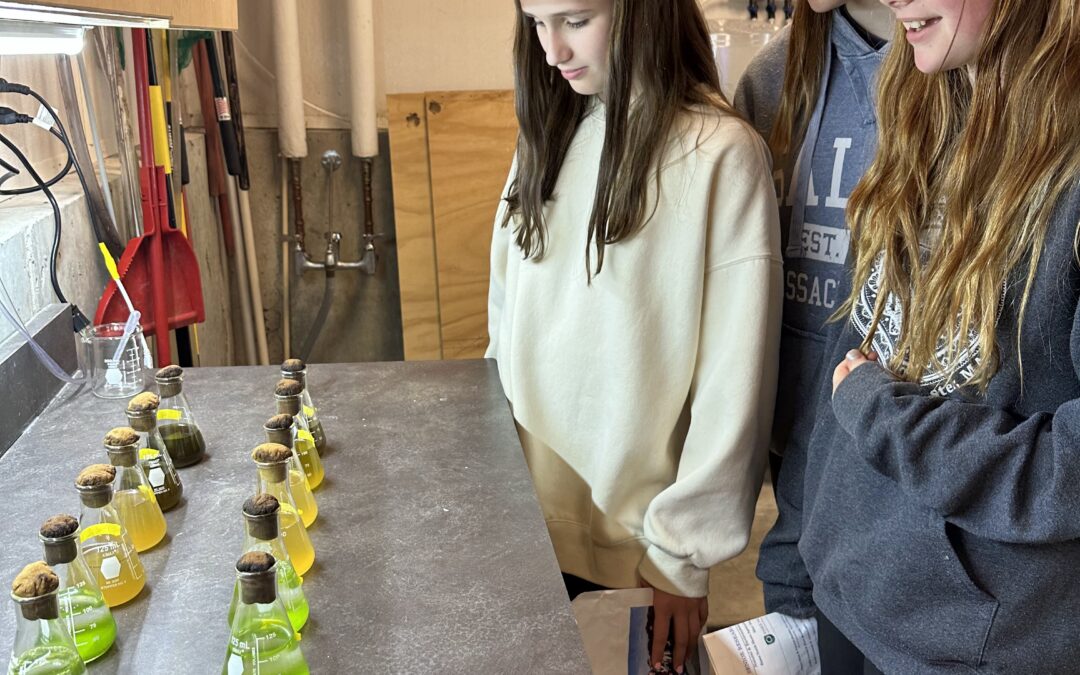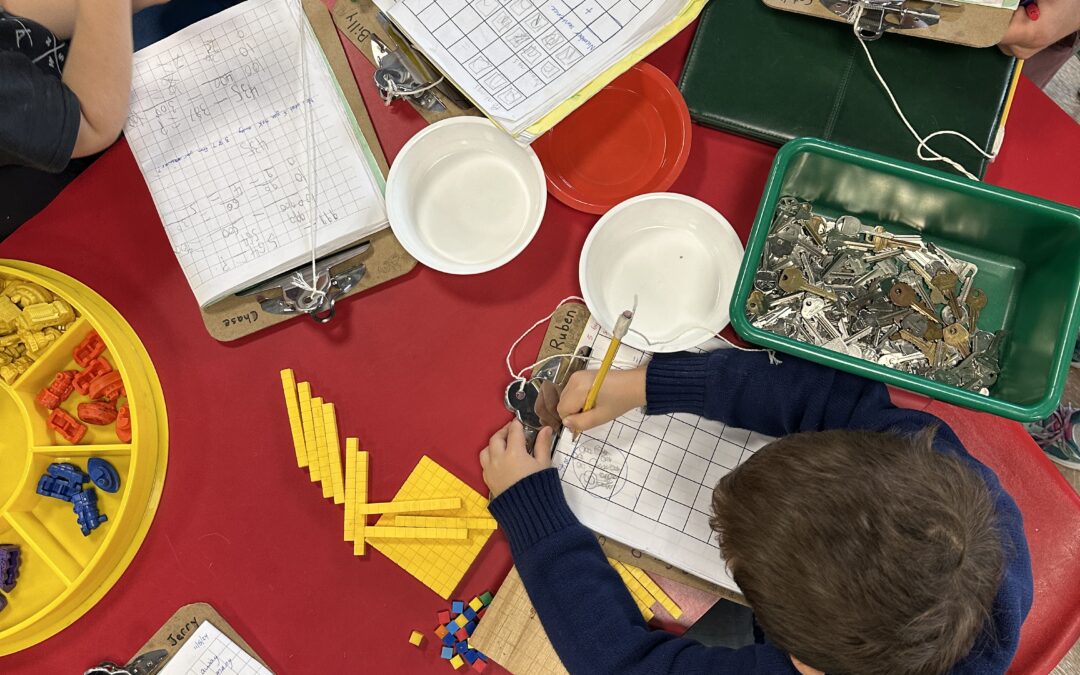
by Kerri Consalvo | Nov 25, 2024 | Uncategorized
Empowering Girls to Lead, Grow, and Thrive
Here we recognize the unique challenges girls face in traditional school environments. Our intentionally small, multi-aged classrooms eliminate the typical pressures of middle school—like navigating boy/girl dynamics—and replace them with opportunities for collaboration, mutual respect, and leadership development.
Here, friendships are built on curiosity and teamwork rather than labels or expectations. Instead of focusing on who’s dating whom, our students focus on solving real-world problems, leading service initiatives, and growing into confident, compassionate leaders who are ready to take on the world.
Girls Who Lead, Together
Our girls don’t compete for attention—they thrive as equals, innovators, and changemakers alongside their peers. Whether it’s working on STEAM projects, leading school committees through our Early Act Club, or exploring the outdoors during multi-day trips, they are encouraged to lead with confidence and courage.
At Phoenix, girls:
- Discover their voice: Through project-based learning and leadership opportunities, girls learn to think critically, speak confidently, and take charge.
- Excel in STEAM: They engage in hands-on science, technology, engineering, arts, and math projects, showing them there are no boundaries to what they can achieve.
- Foster mental wellness: Our whole-child approach prioritizes emotional growth, helping girls navigate adolescence with resilience and a sense of self-worth.
- Collaborate, not compete: The pressures of cliques and labels are replaced with collaboration and shared success in a community where every student matters.
Why It Matters
Girls deserve a space where they can lead without limits, explore without fear, and grow without barriers. At The Phoenix School, we’re redefining education for girls—because we believe every child deserves the chance to thrive, not just survive.
Let’s prepare your daughter for a world that needs her talents, ideas, and leadership.

by Kerri Consalvo | Nov 22, 2024 | Leadership, Social Emotional Learning
As we prepare students for a dynamic and complex future, our commitment to cultivating essential life skills remains unwavering. Conflict resolution is one of the most pressing skills needed in the modern workplace, which, according to experts, is set to become more crucial than ever for leaders and teams alike.
The Growing Need for Conflict Resolution Skills An article from the Harvard Business Review titled 9 Trends That Will Shape Work in 2024 and Beyond highlights that conflict resolution will be a must-have skill for managers. Due to various ongoing crises — including geopolitical tensions, labor strikes, climate change, DEI (Diversity, Equity, and Inclusion) challenges, and significant election cycles — workplace conflicts are at an all-time high.
When conflicts arise, they not only hinder individual performance but can also disrupt team dynamics, making it essential for workplaces to foster safe and collaborative environments. Conflict resolution is not inherently intuitive, and organizations that have avoided discussing contentious topics in the workplace may find themselves at a disadvantage.
On the other hand…
Empowering Future Leaders Our project-based learning model equips students with the skills they need to succeed, including effective communication and interpersonal problem-solving. By fostering open discussions, team projects, and leadership exercises, we ensure that students learn how to manage conflicts constructively. These experiences lay the foundation for them to become empathetic leaders capable of guiding teams through challenging situations with poise and insight.
A Proactive Approach Much like leading organizations that are investing in conflict-resolution training for their employees, we prioritize giving our students real-world experiences that teach them to recognize differing perspectives, engage in active listening, and build consensus. Through hands-on mentorships and collaborative learning, The Phoenix School readies students to navigate complex social dynamics—skills they will carry forward into their careers and communities.
As we look ahead to 2024 and beyond, the ability to address and manage conflict won’t just be an advantage; it will be essential. The Phoenix School’s commitment to developing confident, capable problem-solvers ensures that our students will thrive as the leaders of tomorrow.

by Kerri Consalvo | Nov 6, 2024 | Uncategorized
Things MATH is not…
Math isn’t about completing endless worksheets or rote memorization – it’s about fostering critical thinking, problem-solving skills, and creativity.
When they just complete worksheets…what are they actually learning?
Math is a dynamic field that involves critical thinking, problem-solving, creativity, and exploration.
math is not just about rote memorization or completing endless worksheets.
Math problems often have multiple solution paths. Encouraging students to think critically about which approach to take and why helps develop analytical skills that are applicable across various disciplines.
Real-world problems rarely come neatly packaged in a worksheet format. By presenting students with open-ended problems, they learn to apply mathematical concepts to solve practical problems, preparing them for challenges they may face in their future careers.
Math offers opportunities for creativity and exploration. Allowing students to experiment, make conjectures, and explore different strategies fosters a deeper understanding of mathematical concepts and promotes a sense of ownership over their learning.
Math is deeply intertwined with other subjects such as science, engineering, art, and even music. By engaging students in multidisciplinary activities, they see how math is relevant and applicable beyond the confines of the classroom.
Math isn’t just about numbers; it’s about conveying ideas and reasoning effectively. Providing space for students to write, draw, and explain their thinking helps them develop communication skills essential for success in both academic and real-world settings.
When students are merely completing worksheets, they may miss out on these crucial aspects of mathematical learning.
Phoenix has been incorporating hands-on activities, collaborative problem-solving tasks, real-world applications, and opportunities for creativity and exploration into our math curriculum.
Our approach not only makes math more engaging and meaningful for students but also better prepares them for the challenges they’ll encounter in their academic and professional lives.
After reading this post do you agree that math education should involve more than just completing worksheets?



